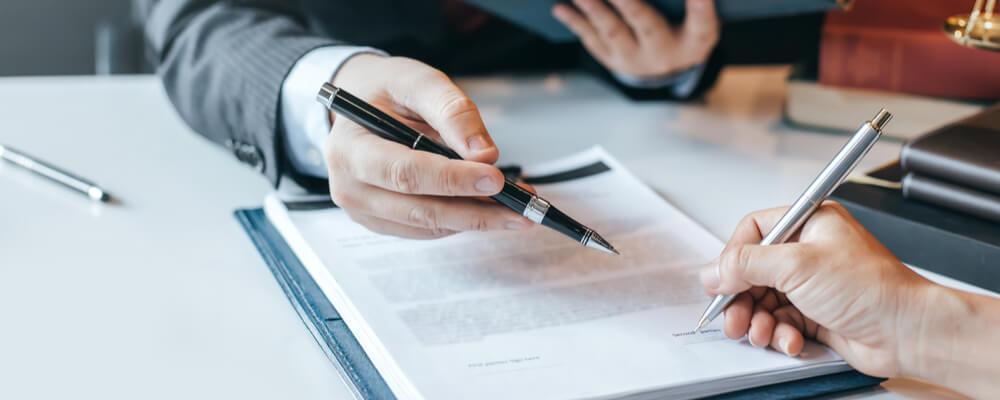United States Consumer Bankruptcy Attorneys

Lawyers Assisting Individuals and Families With Bankruptcy Filings Across the U.S.
Debt is an inescapable fact of life for many Americans. Unexpected circumstances can cause families to struggle to pay back the debts they owe while also paying for their ongoing expenses and necessities. Even a few missed payments can have a variety of negative effects on a person's credit score and overall financial situation. Unpaid debts can snowball, leading to harassment by creditors, lawsuits from credit card companies, or home foreclosure. In many cases, bankruptcy provides individuals and families with a way to receive a fresh start by wiping out the debts they owe or consolidating them into a manageable, affordable payment plan.
Options for Consumer Bankruptcy
While both individuals and businesses can pursue bankruptcy, personal bankruptcy often involves a simpler filing process than business bankruptcy. Individuals or married couples will usually use one of two options:
- Chapter 7 bankruptcy - This form of bankruptcy may be used by those who do not own a home or who do not earn enough income to realistically pay off their debts. It will involve the liquidation of a person's non-exempt assets, meaning that some of the property they own may be seized and sold to pay off some of the amount they owe to creditors. At the completion of the bankruptcy process, all debts that were included in the bankruptcy filing will be discharged, and the debtor will no longer be required to pay them off. A means test is used to determine whether a person or couple qualifies for Chapter 7 bankruptcy based on their income and expenses.
- Chapter 13 bankruptcy - Debtors who do not pass the means test or who are looking to avoid foreclosure on their home or repossession of other property may use this form of bankruptcy. In these cases, a repayment plan will be created in which the debtor will pay off some of the debts they owe over a period that lasts between three and five years. If a person can continue making payments on debts such as mortgages or auto loans while also meeting the requirements of their repayment plan, they will be able to keep their property and maintain financial stability. Upon completion of the repayment plan, any remaining unsecured debts that were included in the bankruptcy will be discharged.
For those who are facing financial issues, filing for bankruptcy can help them avoid immediate penalties while they determine the approach to take with their debts. After filing, an automatic stay will go into effect, preventing creditors from taking action to collect debts and putting a halt to foreclosure proceedings. Debtors can then determine whether they qualify for Chapter 7 bankruptcy or whether debt consolidation through Chapter 13 would be the better option. During the bankruptcy process, debtors will need to complete a number of requirements, including credit counseling to help them understand the practices they can follow to manage their finances and avoid debt in the future.
Contact a U.S. Personal Bankruptcy Lawyer
The bankruptcy process can be very complex, and debtors will need to meet a variety of requirements, including reporting the value of the assets they own, all of their sources of income, and their ongoing expenses. During this process, it is crucial to work with an experienced bankruptcy attorney who can ensure that all paperwork is filed correctly and all legal requirements are met. A skilled lawyer can also help determine whether debtors can make use of alternatives to bankruptcy, such as negotiating loan modifications with creditors, and they can help defend against foreclosure or other legal actions taken by creditors to collect debts. By getting legal help from a qualified attorney who understands how state and federal laws affect bankruptcy proceedings, debtors can understand their options and take the right steps to regain financial stability.











